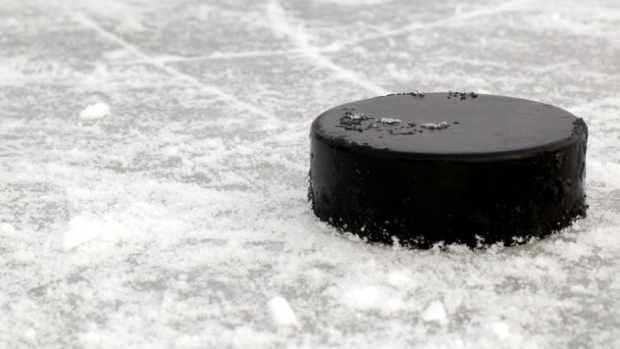Apr 13, 2017
Former NHL players in new study have 'elevated rate' of psychiatric disorders, researcher says
New research of retired NHL players has found that 59 per cent of former players studied have experienced psychiatric disorders.

New research involving retired National Hockey League players has found 19 of 33, or 59 per cent, of former players studied over a four-year period have experienced psychiatric disorders such as depression, anxiety, and alcohol and substance abuse.
The 33 former NHL players ranged in age from 34 to 71, said Dr. Brian Levine, a neuropsychologist with the Rotman Research Institute at Baycrest Health Sciences in Toronto.
The researchers also studied a comparison, or control, group of 18 adult men within the same age group. In the comparison group, 19 per cent had experienced psychiatric disorders.
The results of Dr. Levine’s study, “Cognitive and psychosocial function in retired professional hockey players,” are scheduled to be announced on Thursday by Baycrest. The study was published online on April 10 in the London, England-based Journal of Neurology, Neurosurgery & Psychiatry.
Dr. Levine said he began recruiting the former players for this research in 2012 with the help of the NHL Alumni Association. While the NHL provides funding to the association, Dr. Levine said the alumni organization merely helped to “get the word out” and did not have any influence over the science or results of the study. The study includes data collected through 2015.
“There was definitely an elevated rate of psychiatric diagnoses such as depression, anxiety, substance abuse and bipolar among the former hockey players,” Dr. Levine said in a telephone interview on Tuesday.
An NHL spokesman did not respond to an email seeking comment.
Dr. Levine said that although he does not refer in his study to rates of psychiatric disorders in society, there are estimates within the medical community that as much as half – 50 per cent – of the general population has experienced a psychiatric disorder during their lifetimes.
He said he expects his results will be used as ammunition in the ongoing NHL concussion lawsuit.
More than 100 former players are suing the NHL, alleging the league put its own profits ahead of their long-term health. The players say NHL team officials, including doctors and trainers, rushed players back to the ice before they had fully recovered from brain trauma.
The NHL has argued its players could have “put two and two together” about the consequences of suffering repeated head injuries and concussions.
“This world is very polarized,” Dr. Levine said. “It’s very much a plaintiff and defence world. Some people say the whole concussion issue a joke, a myth. Then there are extremes on the other side, saying everyone who has multiple concussions gets dementia. That’s not true, either. The truth lies somewhere in between.”
Dr. Levine said 19 of the 33 former NHL players in his study had either current or past psychiatric disorders.
Ten experienced psychiatric disorders at the time they were studied, Dr. Levine said. One NHL alumnus reported steroid use and nine said they had a history of using opiates, including four who were taking opiates at the time of testing.
Two NHL alumni were not permitted to participate in the study because they showed signs of severe cognitive impairment. Two other NHL alumni enrolled in the study but were excluded because they didn’t complete the testing.
Dr. Levine said many of the former NHL players he studied are “doing relatively well” with respect to their current cognitive health, although he couldn’t say to how many former players that description might apply.
“Some people might have assumed any athlete with a history of contact sports is going to be severely impaired,” Dr. Levine said. “That’s not true.”
Dr. Levine said he had no preconceived ideas about the prevalence of cognitive disorders among pro hockey players when he began his research.
“I went into this study not knowing what we were going to find,” he said. “I like to consider myself not on either the plaintiff or defence side. My goal is to do the best science as I can. It’s an evolving thing. If we follow this over time and a certain number of guys decline, then we will report that. If the NHL thinks I’m their friend now they’ll hate my guts then.”
Dr. Levine said he and his research team concluded 59 per cent of the former NHL players had either current or past psychiatric disorders after putting the research subjects through a battery of tests that lasted many hours.
He declined to provide the exact questions asked of the players.
“We did memory work, reading them a list of words and asking them to recite them back,” Dr. Levine said. “And then we would ask them to read the list back again 30 minutes later.”
Dr. Levine said Baycrest researchers collected about $1 million worth of funding for the study from donors including the Canadian Institutes of Health Research, the Ontario Neurotrauma Foundation, and the Alzheimer Society of Canada.

